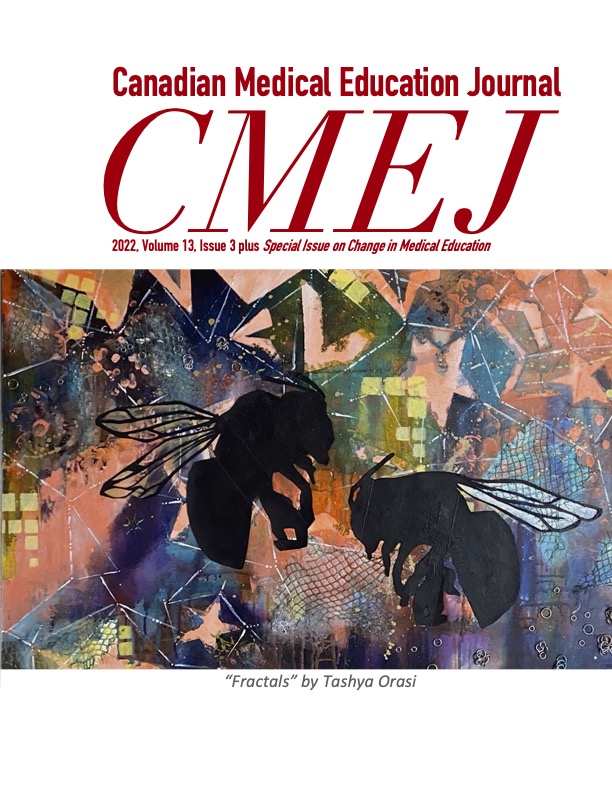It’s a ‘two-way street’: resident perspectives of effective coaching relationships in the clinical learning environment
DOI:
https://doi.org/10.36834/cmej.72940Abstract
Background: Coaching has gained traction in postgraduate medical education to enhance interactions between residents and clinical teachers, but these relationships present unique challenges and tensions. In order to realize the promises of coaching in medical education, we must understand how coaching relationships can be enacted to optimize resident development. The purpose of this study was to explore residents’ perceptions of key characteristics for effective clinical teacher-resident (CT-R) coaching relationships.
Methods: We conducted four focus groups and eight interviews with residents at a Canadian academic center. Using a social constructionist approach, focus groups and interviews were audio recorded, transcribed verbatim, and thematically analyzed.
Results: Residents described three main characteristics that contributed to effective CT-R coaching relationships: safe, meaningful, and collaborative. Residents emphasized that these characteristics needed to be bidirectional in nature to be most effective, in that both the resident and clinical teacher embodied these characteristics.
Conclusions: Residents identified that effective coaching relationships were shaped not only by clinical teacher behaviours, but importantly, the quality of the interpersonal relationship that was fostered. Thus, it is imperative to consider the bidirectional nature of the CT-R coaching relationship when striving to enhance resident development.
Downloads
Published
Issue
Section
License
Copyright (c) 2019 Jessica Trier, Jennifer Turnnidge, Cailie S McGuire, Jean Côté, J Damon Dagnone

This work is licensed under a Creative Commons Attribution-NonCommercial-NoDerivatives 4.0 International License.
Submission of an original manuscript to the Canadian Medical Education Journal will be taken to mean that it represents original work not previously published, that it is not being considered elsewhere for publication. If accepted for publication, it will be published online and it will not be published elsewhere in the same form, for commercial purposes, in any language, without the consent of the publisher.
Authors who publish in the Canadian Medical Education Journal agree to release their articles under the Creative Commons Attribution-Noncommercial-No Derivative Works 4.0 Canada Licence. This licence allows anyone to copy and distribute the article for non-commercial purposes provided that appropriate attribution is given. For details of the rights an author grants users of their work, please see the licence summary and the full licence.











